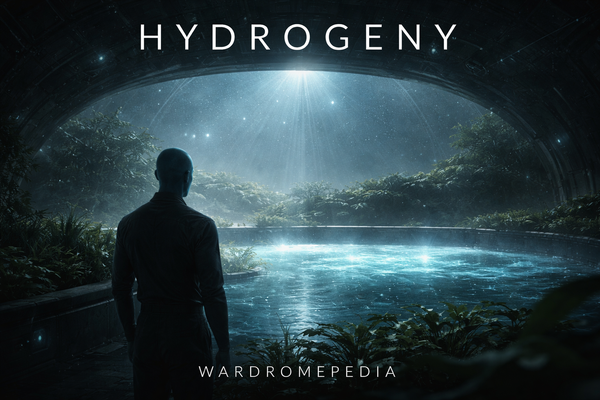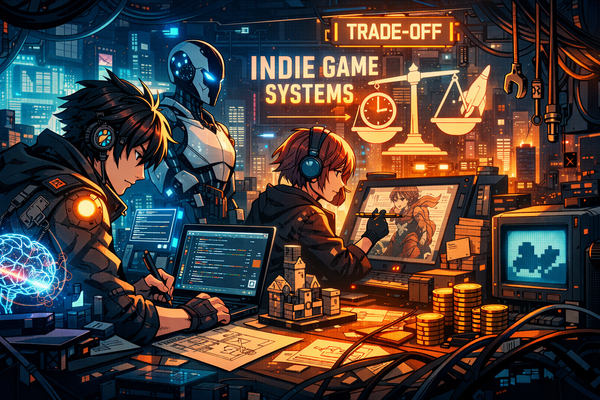Revisiting the golden era of Browser Games: Lessons from early Sci-Fi Classics
Introduction
The early days of internet browser games were a magical time for many of us. With limited resources and technology, developers created worlds that were simple yet immersive, igniting the imaginations of players worldwide. Today, as we navigate the complexities of modern gaming, there's a certain nostalgia for those early days—especially for the sci-fi games that hinted at the future possibilities of the genre. But beyond the wistful memories, these ancient games hold valuable lessons that remain relevant in our current era of gaming.
The Sci-Fi Gems of Early Browser Gaming
In the late '90s and early 2000s, sci-fi-themed browser games provided a glimpse into futuristic worlds. Despite the technological limitations of the time, these games captivated players with their creativity and innovation, often offering deep strategic gameplay and immersive narratives that left a lasting impression.
One notable example was "Wardrome", an Italian browser game born in 2002, developed using HTML and PHP. With a spirit that echoes in the current iteration of the game, "Wardrome" allowed players to command starships, explore galaxies, and engage in strategic battles—all from within their web browsers. Its emphasis on tactical decision-making and deep space exploration made it a standout in the early sci-fi gaming landscape, drawing players into its rich, expansive universe.
Another iconic game from this era was "OGame". Launched in 2002, "OGame" quickly became a cornerstone of the browser-based sci-fi strategy genre. It placed players at the helm of interstellar empires, challenging them to manage resources, build fleets, and conquer distant planets. "OGame" was a game of patience and strategy, where players had to carefully plan their actions, sometimes waiting hours or even days for fleets to reach their destinations. The tension of waiting for an attack to land or for reinforcements to arrive added a unique element of anticipation that kept players engaged.
Similarly, "Utopia" was a text-based strategy game where players managed empires in a distant future. It required cunning diplomacy, resource management, and long-term planning, making it one of the most intellectually stimulating games of its time. These games didn't rely on flashy graphics or complex mechanics but focused on storytelling, community engagement, and strategic depth. They laid the groundwork for the expansive universes we see in today's gaming landscape, from "Star Citizen" to "No Man's Sky."
The Lessons We Can Learn from Early Browser Games
As we reflect on the legacy of these early browser games, several key lessons stand out:
- Simplicity and Accessibility: Early browser games thrived on simplicity and accessibility. They were easy to pick up and play, making them appealing to a broad audience. In an era before broadband internet was widespread, these games had to be lightweight and quick to load, ensuring that they could be enjoyed even on the slowest of connections. In today's world, where many games are becoming increasingly complex and resource-intensive, there's a growing appreciation for games that prioritize intuitive design and broad accessibility. The success of indie games like "Among Us" and "Stardew Valley" highlights that simplicity still has a place in modern gaming. These games remind us that the core of a great gaming experience is not necessarily in its complexity but in its ability to engage and entertain.
- Community and Collaboration: The social aspect of early browser games was crucial to their appeal. Games like "Neopets," "Habbo Hotel," and "OGame" weren't just about gameplay; they were about building communities. Players shared tips, created fan sites, and formed friendships that extended beyond the games themselves. "OGame," for example, fostered a strong community where alliances were formed, and intricate strategies were discussed and executed collectively. This sense of belonging and collaboration was a significant part of what made these games memorable. Today's multiplayer games can learn from this sense of community, emphasizing collaboration and connection rather than just competition. As social gaming becomes more integrated with platforms like Discord and Twitch, there's an opportunity to build on these early foundations to create even more robust and connected gaming communities.
- Creativity within Constraints: The developers of early browser games had to work within significant technical constraints, yet they still managed to create engaging and memorable experiences. With limited graphics, they relied on strong narratives, compelling mechanics, and player imagination to create rich gaming experiences. This creativity under pressure is something that modern developers can learn from. As technology advances, it's easy to get lost in the possibilities and forget that sometimes, less is more. By focusing on core gameplay and player experience, developers can create games that are both innovative and timeless. "Wardrome," for instance, despite its simple visual presentation, created a deep and engaging universe that captivated players, proving that a game's success is not solely dependent on its graphical fidelity.
- Long-Term Engagement through Strategic Depth: Many early sci-fi browser games excelled in creating long-term engagement through strategic depth. Games like "OGame" and "Utopia" were not about instant gratification; they were about building something over time, whether it was an empire, a fleet, or a reputation. This approach to gameplay fostered a deep connection between the player and the game, encouraging them to think carefully about their decisions and plan for the future. In contrast, many modern games focus on instant rewards and quick progression, sometimes at the expense of strategic depth. Revisiting the design philosophies of these early games could inspire a return to more thoughtful, long-term engagement in contemporary gaming.
The Enduring Appeal of Sci-Fi Themes
Sci-fi has always been a genre that captures the imagination, and this was especially true in the early days of browser games. The vastness of space, the potential for advanced technology, and the unknown possibilities of the future provided fertile ground for game developers. Whether it was managing a galactic empire in "OGame" or exploring distant galaxies in "Wardrome," these games offered players a chance to immerse themselves in worlds that were limited only by their imaginations.
The enduring appeal of sci-fi in gaming is evident in the success of modern titles like "Mass Effect," "Elite Dangerous," and "No Man's Sky." These games continue to explore the themes of space exploration, advanced technology, and the unknown, building on the foundation laid by their browser-based predecessors. However, what made the early browser games unique was their ability to convey these grand ideas through simple, accessible gameplay. This balance between grand thematic ambition and gameplay simplicity is a lesson that modern developers can take to heart.
Conclusion: Nostalgia with a Purpose
The nostalgia we feel for early browser games isn't just about longing for a simpler time—it's about recognizing the enduring qualities that made those games special. These games were built on principles of simplicity, accessibility, community, and creativity within constraints. They offered deep strategic gameplay and rich narratives that engaged players in ways that many modern games sometimes struggle to replicate.
As we continue to push the boundaries of what's possible in gaming, we should remember the lessons from those early days. By embracing simplicity, fostering community, and staying creative within constraints, we can create games that not only look to the future but also resonate on a deeper, more meaningful level. The early sci-fi browser games like "Wardrome" and "OGame" remind us that at the heart of every great game is a compelling experience, one that can be delivered just as effectively through a web browser as through the most advanced gaming platforms of today.



